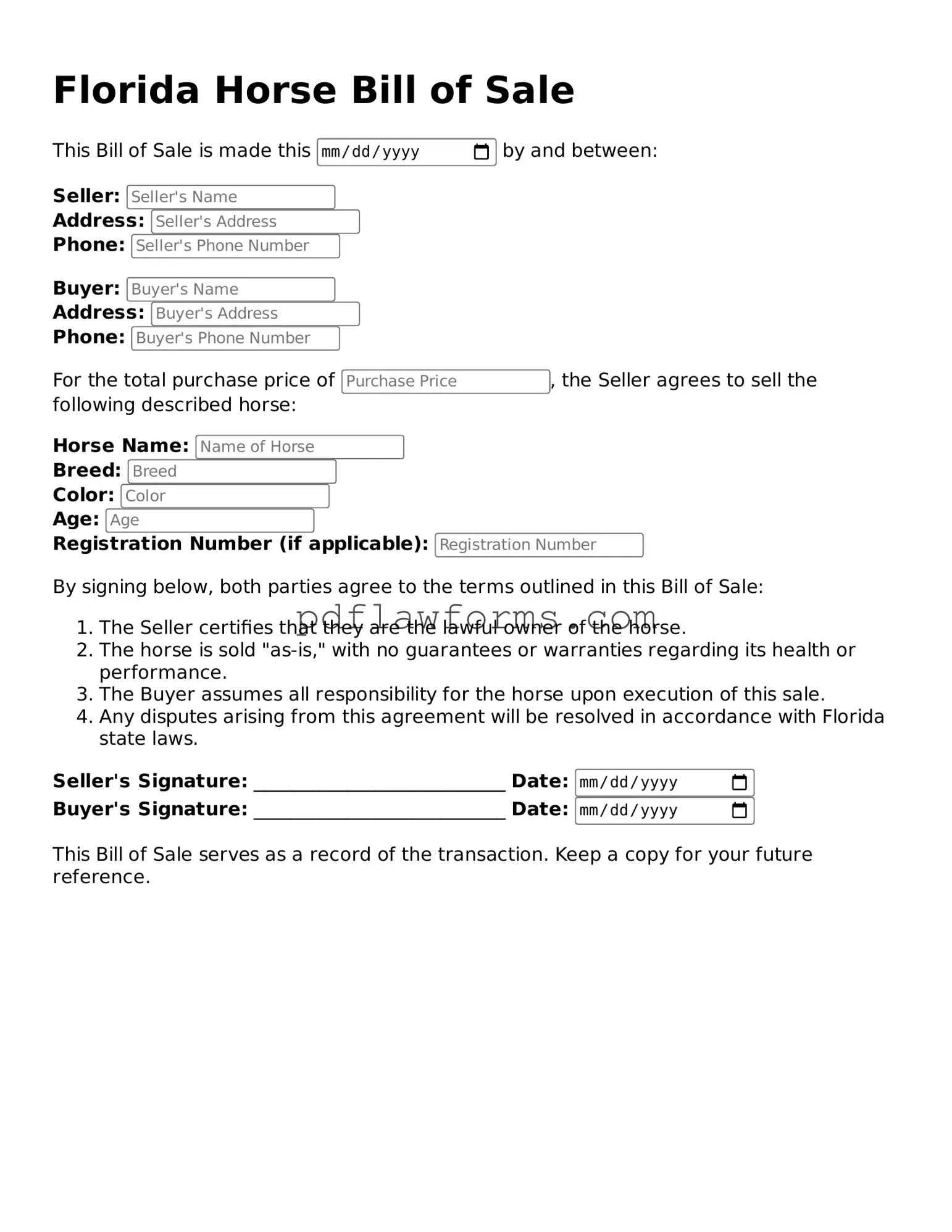Horse Bill of Sale Form for the State of Florida
The Florida Horse Bill of Sale form is a legal document that records the sale and transfer of ownership of a horse in Florida. This form protects both the buyer and seller by outlining essential details such as the horse's description, sale price, and terms of the transaction. Ensure a smooth transfer of ownership by filling out the form accurately—click the button below to get started.
Make My Document Online

Horse Bill of Sale Form for the State of Florida
Make My Document Online
You’re halfway through — finish the form
Edit and complete Horse Bill of Sale online, then download your file.
Make My Document Online
or
⇩ Horse Bill of Sale PDF
